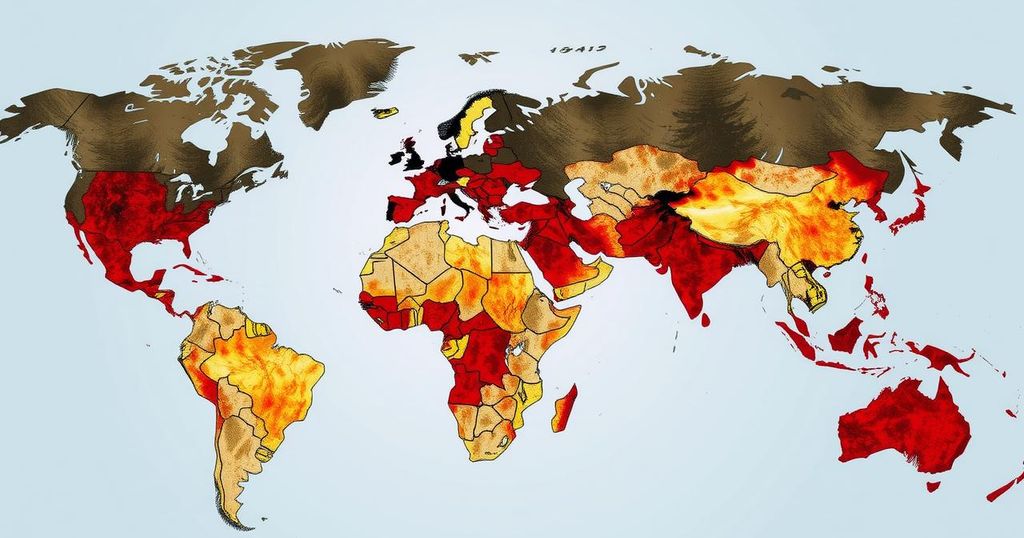The Atrocity Alert No. 422 emphasizes the escalating humanitarian crises in Sudan, Myanmar, and the Democratic Republic of the Congo (DRC), marked by severe violence, displacement, and famine. In Sudan, ongoing military confrontations have caused extensive civilian casualties and widespread food insecurity. Myanmar faces ongoing conflict with significant humanitarian implications, particularly for the Rohingya population. The DRC’s renewed conflict dynamics have prompted an extension of the UN peacekeeping mission amid increasing violations against civilians, underscoring the need for international intervention.
The ongoing conflict in Sudan, now persisting for over 20 months, has resulted in severe humanitarian consequences for the civilian population. Recent military escalations by the Sudanese Armed Forces (SAF) against the Rapid Support Forces (RSF) have intensified hostilities, particularly illustrated by airstrikes that killed and injured many civilians around Khartoum. The situation in Darfur remains critical, with reports documenting the deaths of over 782 civilians since May 2024 due to continued violence, indicative of potential genocide as described by the United States.
Acute food insecurity has affected over 24.6 million people, indicating a widespread crisis, with some areas facing famine conditions. The UN Office for the Coordination of Humanitarian Affairs has characterized the situation as dire, with rampant violence against civilians and collapse of essential services. Humanitarian organizations are urging for immediate international intervention to broker a ceasefire and ensure unhindered humanitarian access to affected populations.
Similarly, in Myanmar, the military’s ongoing conflict with ethnic resistance organizations has led to systemic violence and a controversial census that has failed to genuinely account for the country’s diverse demographics. Despite the junta’s claims of progress, the situation remains precarious, with an alarming number of civilians facing starvation, particularly among the Rohingya population in Rakhine State. Efforts towards a genuine political dialogue appear tenuous amidst ongoing military abuses.
The Democratic Republic of the Congo (DRC) continues to suffer from rampant violence, particularly in the east, prompting the UN Security Council to renew the mandate of the MONUSCO peacekeeping mission. Armed groups, including the M23, have increased their territorial assaults and human rights violations against civilians. The complex interplay of resource exploitation and armed violence exacerbates the crisis, with Apple recently facing scrutiny for sourcing conflict minerals tied to severe human rights abuses in the DRC. The international community must take collaborative action to address these multifaceted crises comprehensively.
The Global Centre for the Responsibility to Protect highlights urgent humanitarian crises in three countries: Sudan, Myanmar, and the Democratic Republic of the Congo. Each region has faced severe violence affecting millions, manifesting in various atrocities including conflict, displacement, and famine. The report underscores the need for international accountability and humanitarian intervention, focusing on the protection of civilians and the urgent need for solutions to prevent further escalation of violence and suffering.
In conclusion, the reports from Sudan, Myanmar, and the DRC illustrate an alarming pattern of violence and humanitarian crisis requiring urgent international intervention. Protecting civilians must be prioritized in these ongoing conflicts, and efforts to promote peace and stability should be accelerated. The importance of adhering to international humanitarian law cannot be overstated, as the consequences of inaction continue to escalate in these regions.
Original Source: www.globalr2p.org






